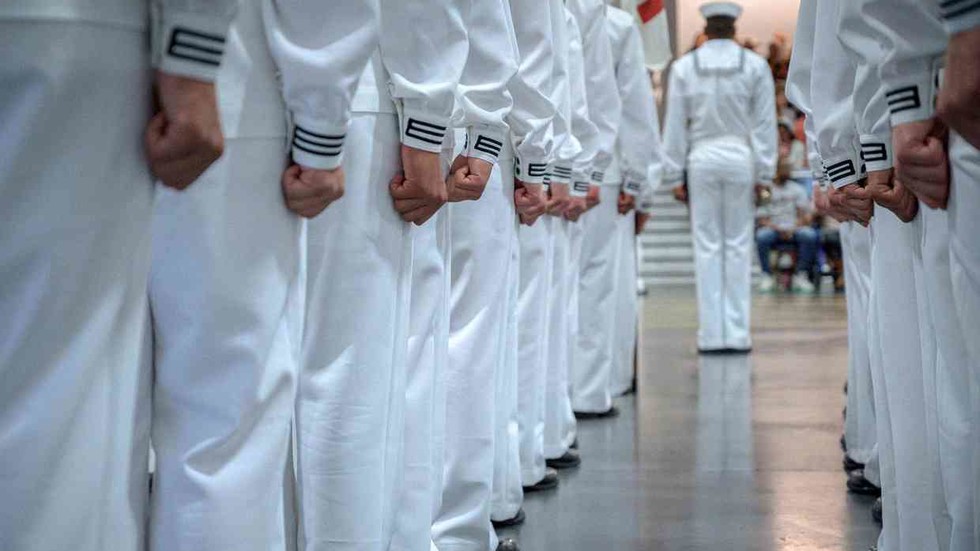
With recruiters struggling to fill open slots, the military branch has quit pushing out service members who failed to get promoted

Navy recruits stand at attention during a graduation ceremony in Great Lakes, Illinois. © Petty Officer 1st Class Chris Williamson; US Navy
Recruiting struggles and staffing shortfalls have prompted the US Navy to suspend its so-called “up-or-out” policy of discharging veteran service members who haven’t performed well enough to get promoted.
The Navy will instead retain underperformers to reduce its number of “gaps-at-sea,” meaning unfilled jobs on deployed vessels, according to a statement on Thursday by the chief of naval operations in Washington. A pilot program allowing more veteran service members to remain with the Navy and qualify for retirement benefits is designed to improve retention efforts and “fleet readiness.”
Sailors were previously forced to leave active duty and transfer to the Naval Reserve if they didn’t advance to a high enough rank within a certain time period, called “high-year tenure.” The two-year pilot program will affect about 1,600 service members who otherwise might have been pushed out.

The Navy reportedly has about 9,000 gaps-at-sea amid recruiting struggles by all branches of the US military. The US Army, for example, fell 25% short of its recruiting goal, enlisting 15,000 fewer new troops than targeted, in its fiscal year ended on September 30. The Navy had a similar shortfall in recruits for its reserve force.
The new retention program marks the latest step by the Navy this year to address its staffing shortfall. The branch previously relaxed its rules to allow senior enlisted advisers, known as command master chiefs, to serve as long as 36 years. It’s also offering enlistment bonuses and loan repayments totaling as much as $115,000 for new recruits. The Navy raised its maximum enlistment age to 41 from 39 and tweaked its hiring standards to allow more recruits who barely passed their entrance exams.
“The Navy understands we are in a challenging recruiting environment, and we are focused on making sure that every active-component sailor who wants to remain on active duty has that opportunity,” Rear Admiral James Waters said in a statement.
READ MORE: Marine Corps may drop ‘yes sir’ for gender equity




